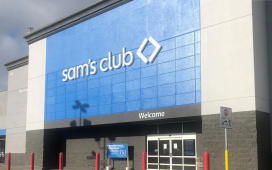
The VW Atlas is driving Volkswagen sales and profits.
vw.com
Scott Keogh got the call last Fall from Volkswagen AG CEO Herbert Deiss. “Meet me in Chattanooga. I want to talk to you about something important.”
Keogh worked for Audi as CEO of the luxury division in North America, and he had been putting up good numbers for five straight years. Sales increased from 182,000 in 2014 to 223,000 in 2918, good despite the brand being a little late to the shift from sedans to SUVs. Moreover, his management of the brand has been utterly coherent and strategic. That’s an adjective that holds currency at VW these days.
It turns out that Deiss wanted him to bring that steadiness and coherency, not to mention political acumen, to the big brand and run Volkswagen in North America. We can argue whether it is a promotion. Yes, VW’s North American sales last year were 354,000, and Audi’s were 223,000. But it doesn’t take a brain surgeon to know that Audi is throwing off far more profit for the company, and doesn’t have the baggage of Volkswagen and its diesel scandal that has cost the company more than $30 billion and an unknowable amount of goodwill with consumers.

Scott Keogh
vw.com
“In my heart, I have always has this job in my mind,” says Keogh. Give him a few minutes, and Keogh will go into nostalgia mode, and talk about how the family car as a child was a Beetle and he ended up squeezing his splintery frame in the small space for luggage behind the rear seat. I still don’t know how that is possible.
Keogh made his mark with the media first as a public relations executive with Mercedes-Benz North America, and very briefly as CEO of Daimler’s smart USA unit. Then, he was off to Audi USA as marketing chief, and the company made him CEO. That combination of PR savvy and marketing know-how, with experience leading product decisions for Audi of America should combine for a useful resume for what ails VW in the U.S.
“It’s a big, complex challenge. A whole different eco-system from Audi, with different politics and complexity,” says Keogh, who put up a video of himself on Youtube explaining why he took the VW job, and what he has in mind.
Keogh is up for digging in. “Volkswagen has missed a lot of opportunity in the last decade. It’s product line has been misaligned with the market here in terms of the transition to crossovers and SUVs, and then the TDI (diesel scandal) problem on top of all that.” Now, says Keogh with excitement in his voice, “We’ve never had the portfolio better aligned.”
Keogh’s first ad out of the box: a TV ad that means to tell the story of every VW employee who thinks what the company did in the diesel scandal was wrong.
A couple of years ago, just 16% of VW sales were in crossovers and SUVs. Today, bolstered by a redesigned Tiguan that is finally priced right for the U.S., and the new Atlas, 52% of VW sales are in the fastest growing category in the market. “We’ve got two terrific entries in a category where half the market is–8 million vehicles, with more on the way.”
One of those vehicles is the star of the ad campaign VW just kicked off–the return of a VW Microbus with an electric drivetrain, due to hit the market in 2021.

VW’s electric comeback of the Microbus.
vw.com
Keogh is a student of advertising, and loves the landmark, much-studied and admired VW ads of the 1960s done by Doyle Dane Bernbach in New York. Keogh’s new agency that he hopes will create some new magic in the marketplace is Joannes Leonardo, which won the business to handle VW last Fall as Keogh was riding in.
The insight that the agency came up with that lit up Keogh’s mind is risky, and potentially tricky to pull off. It all boils down to “self-interest.” It is meant to be–and all those invested in VW’s recovery are hoping it is–a big idea.
Not one time in my interviews did Keogh or Promutico mention Donald Trump. But it is almost impossible to imagine this strategy having any currency or validity unless it is juxtaposed against Trumpism, dominated by a rekindling of the 1930s “America First,” campaign that tried to keep the U.S. out of World War Two (ironically against Germany.) Trumpism has led to U.S. policy of pulling out of the Paris Agreement for protecting the planet from ruination through carbon emissions, and trying end a program through which immigrants can seek asylum in the U.S. from political oppression and physical threat in their home country.

The VW Atlas is a good sized SUV built in the U.S. and it’s helping to boost sales.
Vw.com
But Keogh and Promutico talk more of greed and indifference to fairness practiced by corporations, like Volkswagen itself, and celebrities. “One of the examples I point to is the recent case of people paying hundreds of thousands of dollars to get their kids accepted to great colleges,” says Keogh. Corporately, he says it is found in his own company’s diesel scandal in which a handful of individuals thought it was better to cheat the emissions tests that made the diesel engines appear cleaner burning than they were–instead of admitting they had failed the test of creating a good engine that was both legal and cleaner than the old ones.
In a nutshell, Keogh and his agency believe that they will reach people appealing to their better angels, pushing against the default currency of self-interest that most people live with. That’s interesting and risky. Keogh wouldn’t have it any other way.
Volkswagen has plenty of company in screwing the planet, customers, innocent bystanders and employees. Airlines that cut corners and shrink bathrooms to Barbie and Ken size. While Keogh is not tossing brickbats at other companies, he could to make the point. BP, which cheaped out on its oil-rig technology and procedures and spilled millions of gallons of oil in the Gulf of Mexico. Boeing recently admitted that it cut some costs that made its Boeing 737 Max plane harder to fly for he pilots and have led to crashes.
Volkswagen’s first TV ad out of the gate stars an actor playing a designer-employee who hears a report about the diesel scandal on the radio, and resolutely turns to his drawing board and begins sketching the new Microbus.
Could that be Keogh’s alter ego? Keogh’s Audi lineup, which also sports TDI diesel versions, was caught up in Dieselgate as well. There were 2.1 million Audis impacted worldwide, with 14,000 sold by Audi’s U.S. division. In a Youtube video, he describes a “diesel disaster,” and he’s not talking about the financial impact on VW. He’s talking about the acts of willful deception by VW managers.
Keogh wants to lean into the controversy and the question of VW’s guilt in dieselgate. If there is a flaw in the strategy in the ads, it’s that it might be too subtle after the initial ads. Lots of people won’t get it.
On the other hand, the ads that have come out of the campaign so far do work on two levels, which is probably smart. For people who don’t really know about the diesel scandal, the ad works just fine as a promotion for the brand. For those who do know the background, the message could resonate on a deeper level. This could be like the “secret menu” for people in the know at In-and-Out Burger.
Most CEOs in the auto industry don’t really understand advertising, let alone PR. For most, PR is something they are deeply uncomfortable with–an opportunity to sit on the metaphorical dunking machine while reporters who earn a fraction of CEO pay get to make or break C-suite reputations by hurling baseballs . Keogh is different.
He could well be the right man at the right time with the right toolkit and the right idea. History will judge.








